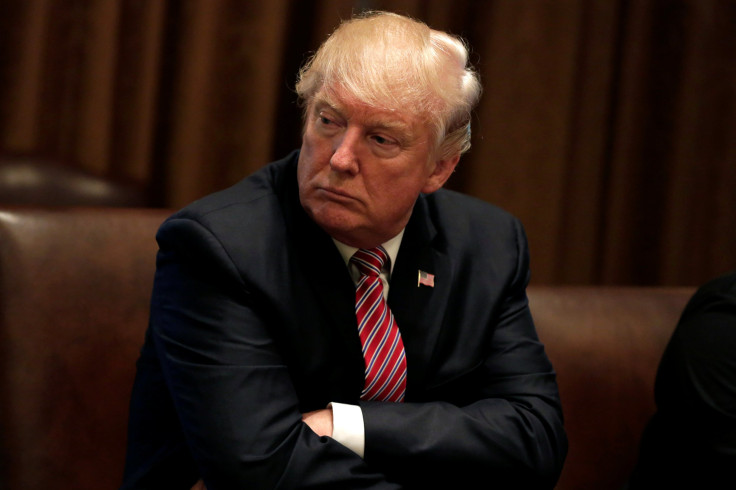Is Donald Trump Mentally Unfit To Be President? Psychiatric Experts Weigh In

There is a long-standing rule self-imposed rule among psychiatrists who are members of the American Psychiatric Association (APA): mental health of political figures they have not personally evaluated should not be declared publicly.
Called the Goldwater Rule, it came into being after an incident that took place during the 1964 presidential election. Fact magazine published a survey in which 1,189 psychiatrists out of 2,417 who responded to the survey that queried 12,356 experts responded that candidate Senator Barry Goldwater, the GOP nominee, was psychologically fit to be president.
This was considered a violation of the ethical code of the physicians. When Goldwater, who went on to win the GOP nomination, sued the magazine for libel and won, the APA mandated the rule to its members.
However, with the recent election of President Donald Trump, all rules seem to be abandoned by many including mental health experts from the APA and otherwise, coming forward to make statements saying they were concerned that the president had “dangerous mental illness.”
In a conference at Yale’s School of Medicine in April, several psychiatrists claimed that Trump was “paranoid and delusional.” After a New York Times column by journalist Charles Blow describing Donald Trump’s constant need “to grind the opposition underfoot,” another group of mental health experts wrote an open letter to the paper and said they shared Blow’s concern.
They also denounced the Goldwater Rule and said the silence from the country’s mental health organizations “has resulted in a failure to lend our expertise to worried journalists and members of Congress at this critical time. We fear that too much is at stake to be silent any longer.”
The group addressed Trump’s “rage reactions” that showed he had an inability to tolerate views that were different from his own. “Individuals with these traits distort reality to suit their psychological state, attacking facts and those who convey them (journalists, scientists). In a powerful leader, these attacks are likely to increase, as his personal myth of greatness appears to be confirmed. We believe that the grave emotional instability indicated by Mr. Trump’s speech and actions makes him incapable of serving safely as president,” they said.
A petition was circulated by “ Duty to Warn,” a coalition that comprised almost 800 mental-health professional and was started by psychiatry professor Dr. Bandy X. Lee at the Yale conference to speak up about Trump’s mental health. Co-founder of the group, Dr. John Gartner, put up the petition which stated Trump is “psychologically incapable of competently discharging the duties of President” on Change.org where it garnered more than 60,000 signatures.
Gartner also penned a book titled "All I Ever Wanted to Know about Donald Trump I Learned From His Tweets," analyzing the president’s behavior from his Twitter activity and said he was a narcissist and paranoid. “ Donald Trump’s manic dark energy drives him to vaunt himself and denigrate his fellow human beings relentlessly: all day, all night, every day, and every night,” Gartner wrote. He also added: “He is a malignant narcissist who is also on the bipolar spectrum. From a psychiatric perspective, the prognosis could not be more dire—for us.”
However, the APA when asked about breaking the ethical considerations of the Goldwater Rule, pointed to a blog by Maria Oquendo which said “ breaking the Goldwater Rule is irresponsible, potentially stigmatizing, and definitely unethical.”
Not just psychiatrists but lawmakers have also urged Trump to undergo a mental health evaluation to determine if he is stable enough to stay in office.
Representative Zoe Lofgren (D-Calif.) introduced a resolution in the House of Representatives which encouraged the vice president and the Cabinet to have the president undergo the examination whose results if seen as unfavorable would invoke the 25th Amendment, allowing the vice-president and the Cabinet to jointly remove him.
In a statement announcing the resolution, Lofgren asked if the president suffers “from early stage dementia. Has emotional disorder so impaired the President that he is unable to discharge his duties,” she continued. “Is the President mentally and emotionally stable?”
However, it remains to be seen if the petitions and the resolutions bring about a conclusive idea on Trump’s mental health.
© Copyright IBTimes 2025. All rights reserved.





















